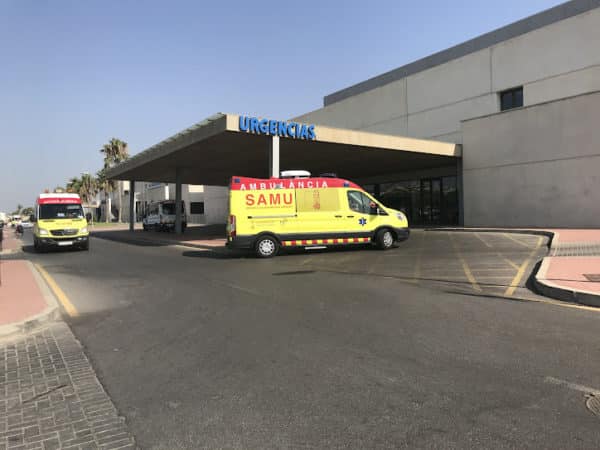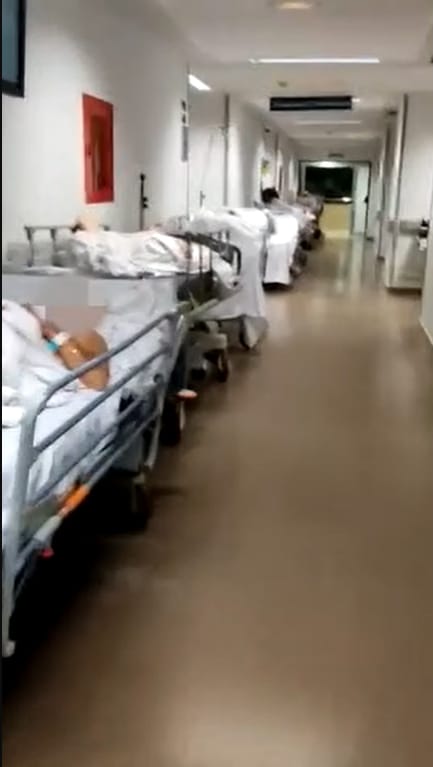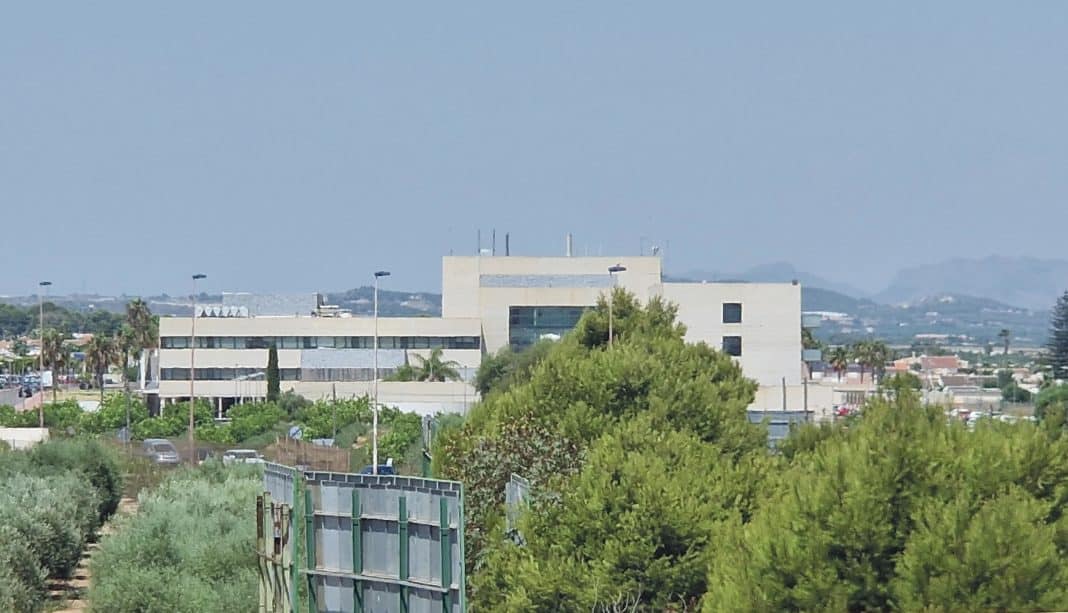It has been an ongoing crisis for some months, but despite the introduction of the so-called “Shock Plan” to deal with the situation, and the complete revamp of the emergency room, the care being given at Torrevieja hospital has gone from being extremely bad to catastrophic, which the unions describing as “unsustainable”.
The problems first arose in October when the regional government reverted the hospital back to public management, after the private firm, Ribera Salud, had been running the facility, and extremely successfully, for many years.
It was expected that summer would be a real test, but the end result is an appalling service being given to patients.
Despite the supposed improvements, in recent weeks, other ER doctors have resigned and the rapid consultation and traumatology unit doesn´t operate every day.
To put the effects into real terms for patients, on Monday the hospital was dealing with 34 patients occupying observation beds, all examination boxes were full, and there was a stream of patients on stretchers in the corridors, some of whom had been waiting a staggering 80 hours for admission. In addition, another 60 patients remained in the waiting room to be seen, more than 15 hours later, according to union data.
By Tuesday, the situation was not much better, with 31 patients in the observation room, some with the same hours of waiting for admission. And in the boxes there were more than 12 patients with up to 20 without admission and 82 patients in the waiting room, with waits of up to 21 hours.
The unions representing workers describe the situation as “unsustainable”, as they barely have four or five doctors to cover the emergency room, much less than when Ribera Salud ran the service. Ribera Salud had left 27 doctors in the Emergency Department.
The unions also claim that the management at the hospital continues to ignore the claims of the health workers who work in the hospital and of the patients alleging that a rapid consultation has been launched in the service and a traumatologist has been referred to the Emergency Room. The unions assure that neither of the two measures is being permanent.
Despite the management ignoring the first-hand information from those working on the ground, they are clearly aware that there is a problem. In order to alleviate the pressure on the hospital, they are asking those in need of medical attention to attend the local clinics rather than the hospital, in the first instance.
To some extent, that plan is working. In July, the Points of Continuous Attention (PAC) dealt with 78% of the emergencies, a substantial increase in medical attention in the clinics, with the assistance of 7,500 more patients than those attended during the same period of 2019, just before the pandemic, and about 9,000 more patients than last year.
These clinics are currently attending to an average of 830 patients per day, with an average waiting time less than 30 minutes. Thus easing the pressure on the hospital that would have occurred if the patients had attended the emergency room.
But the situation has extended beyond Torrevieja hospital, the ambulance service is also struggling to cope with demand. The regional government recently agreed to increase the number of ambulances serving the community, which can be seen with the extension in service cover in various locations, but they are struggling to cover those already in existence.
A man died in July when an ambulance which should have carried a doctor was staffed by medics of lower qualifications, a matter under investigation by the prosecutor. It then came to light that there are several SAMU units that have not had a doctor since July 1, “which is a clear danger for patients,” according to a doctor who works in the service.
The Alicante Medical Association (COMA) and the Community Medical Union (CESM-CV) launched a campaign as a result, ‘Without a doctor, it’s not SAMU’, designed to warn and aske members of the public to “report incidents and irregularities that produced in the Urgent Medical Assistance Services (SAMU) in the Valencian Community”.
“A situation that has spread due to the high precariousness that exists in the health emergency services, and despite the fact that the Order of July 11, 2000, which regulates the Emergency Information and Coordination Centres, establishes that SAMU is a team made up of a doctor, a nurse and a stretcher-bearer driver,” the campaign information explains.

Although there is no official acknowledgement as to why these doctors are missing, to try to encourage doctors back, the regional health body offered an extra 5 euro per on-call, a plan that the unions rejected, saying that the professionals of the service feel “insulted” with that offer on top of the 22 euro they get already, subsequently, no doctors agreed to sign up.
The CESM union points out that other regions are also having problems finding doctors this summer, such as Andalusia, have proposed a program with a supplement of up to 51.95 euro per hour per module completed. More than 50 euro per hour while in the Valencian Community it does not reach 30 euro. And yet, they are having a hard time finding doctors.
It is not only that doctors are choosing to cover other areas, they need specific qualifications before being allowed onto the ambulances, and the courses have been suspended for the last two years.
On Friday, the regional government approved a 5-million-euro emergency budget to deal with deficiencies in staffing, including covering vacancies, as well as approving an increase in the salary received by the coordinating doctors of the Emergency Information and Coordination Centre (CICU), as well as the medical and nursing staff of the SAMU (and coordinating medical staff of the CICU) who carry out additional activities on a voluntary basis outside the ordinary activity.

The salary increase has an annual budget allocation of 3,236,759 euro and its objective is to improve the remuneration conditions of the Health Emergency Service (SES) staff, encourage coverage of SAMU positions and achieve greater employment stability, which, they say, will allow an increase in resources, which will result in an improvement in the quality of health care for citizens.
There is no doubt that the regional government are investing in health infrastructure, with 70 million euro for the expansion of the Vega Baja hospital in Orihuela, more than 3 million for the health centre on the Orihuela Costa, the purchase of a property in Guardamar which will allow their health centre to expand, which are just three projects announced in recent weeks.
Now, we have to wait and see if this latest investment in the staff who provide care in these facilities pays off, or with the summer season still in full swing, the situation may well get worse before it gets better.





